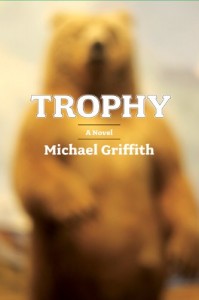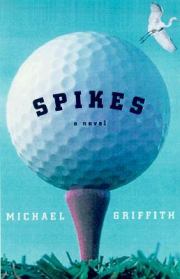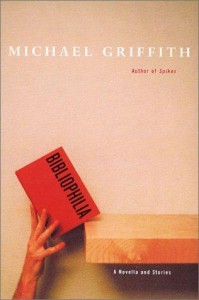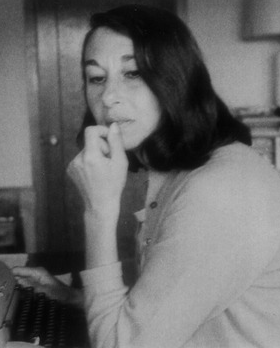 Michael Griffith’s funny, infectious novel Trophy (TriQuarterly) follows Vada, a once promising college student who, after losing his parents in a car accident, drops out of school and never again does anything productive. Meanwhile, Vada’s friend and rival Wyatt becomes a top earner on the Asian golf circuit, gets hailed as a hero for stopping a grapefruit knife-wielding assailant (Wyatt mostly saved the knife-wielder from himself, it turns out), and becomes engaged to the local weather woman, Darla, whom Vada promptly falls for and who treats him like her best girlfriend. Vada makes a plan to tell Darla about his feelings, and then he dies.
Michael Griffith’s funny, infectious novel Trophy (TriQuarterly) follows Vada, a once promising college student who, after losing his parents in a car accident, drops out of school and never again does anything productive. Meanwhile, Vada’s friend and rival Wyatt becomes a top earner on the Asian golf circuit, gets hailed as a hero for stopping a grapefruit knife-wielding assailant (Wyatt mostly saved the knife-wielder from himself, it turns out), and becomes engaged to the local weather woman, Darla, whom Vada promptly falls for and who treats him like her best girlfriend. Vada makes a plan to tell Darla about his feelings, and then he dies.
That’s the whole point, really, of the book, following as it does the last twenty minutes of Vada’s life—as he finishes mowing the lawn, eats cookie dough for lunch, and suffocates under the weight of his friend Wyatt’s stuffed trophy bear. It’s a joke wrapped in a pun inside a pratfall, the gags and absurdities layering and corkscrewing until you don’t know which way is up.
 But Griffith’s novel is more than a series of jokes or comic set pieces. The narrator both claims that Vada is telling the story—he attributes specific words to Vada, claims Vada lied in the previous chapter, etc.—and refers consistently to Vada in the third person, which together make the novel seem less about a (mostly!) pathetic character dying and more about the pieces of each of us which come across as pitiful, unsuccessful, unrealized, incomplete. Vada describes himself as “a hard case, only not in the unreformable-criminal way…but for crimes of excessive interiority and fear.” It’s Social Anxiety Disorder as a metaphysical state, and Griffith deftly connects this human moment to the acts of writing and reading and also, more universally, to our relationship with mortality. Griffith’s fearless narrative gearshifting and his funny, nuanced portrait of grief give the book a degree of subtlety which makes Vada’s story moving and satisfying in ways that less ambitious comic novels can’t hope to achieve.
But Griffith’s novel is more than a series of jokes or comic set pieces. The narrator both claims that Vada is telling the story—he attributes specific words to Vada, claims Vada lied in the previous chapter, etc.—and refers consistently to Vada in the third person, which together make the novel seem less about a (mostly!) pathetic character dying and more about the pieces of each of us which come across as pitiful, unsuccessful, unrealized, incomplete. Vada describes himself as “a hard case, only not in the unreformable-criminal way…but for crimes of excessive interiority and fear.” It’s Social Anxiety Disorder as a metaphysical state, and Griffith deftly connects this human moment to the acts of writing and reading and also, more universally, to our relationship with mortality. Griffith’s fearless narrative gearshifting and his funny, nuanced portrait of grief give the book a degree of subtlety which makes Vada’s story moving and satisfying in ways that less ambitious comic novels can’t hope to achieve.
Extras


- Steve Almond recently interviewed Griffith for the Nervous Breakdown, and here’s another interview from Cincinnati’s City Beat.
- On the NEA’s website, read an excerpt from Bibliophilia, one of Griffith’s previous novels.





